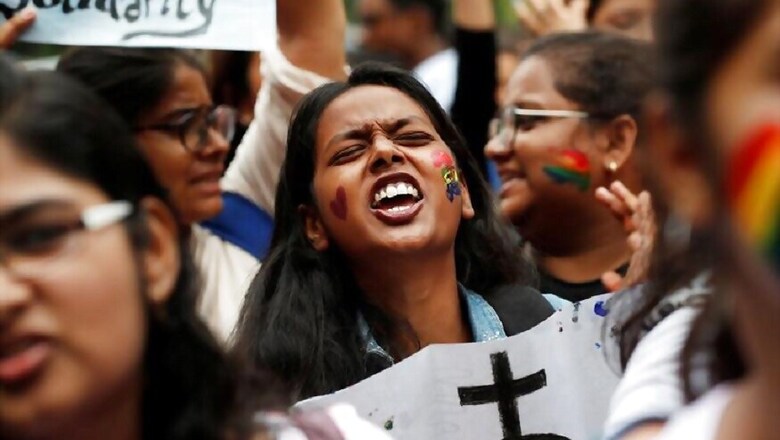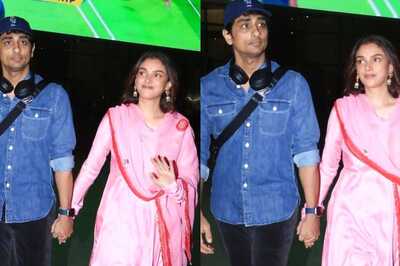
views
New Delhi: Students from the transgender community prefer open universities over central universities in pursuing higher studies, government data indicates, with experts viewing the trend as a bid to avoid derision and discrimination.
The Centre provided information regarding the number of transgender students in academia in the Lok Sabha on Monday, throwing light on the process of integration of members of the community in mainstream higher education.
According to the data, 814 transgender students have been enrolled during the last five years in Indira Gandhi National Open University (IGNOU) and none in central universities. There is also no transgender teaching and non-teaching staff member in these universities, the government said.
But this number may not provide the complete picture, some experts point out, adding that transgender students often refrain from identifying themselves to ward off prejudice.
The Supreme Court in a historic judgment in 2014 ruled that transgender people had equal rights under law, and granted legal status to the third gender. Apart from the right to marry and inherit property, they are also eligible for reservation in jobs and educational institutions, the SC said. However, abuse and exploitation are still common, activists point out.
The missing numbers
Congress MP Anumula Revanth Reddy asked for the university-wise details of the number of transgender students in various central universities of the country, transgender teaching staff in various central universities of the country, and transgender non-teaching staff in various central universities of the country.
Minister of human resource development Ramesh Pokhriyal ‘Nishank’ replied, “As informed by the central universities under administrative control of ministry of human resource development, no transgender student is studying in these universities except Indira Gandhi National Open University (IGNOU) where a total of 814 transgender students have been enrolled during the last five years. There is no transgender teaching and non-teaching staff in various central universities of the country.”
According to the All India Survey on Higher Education 2018-19, the total enrolment in higher education has been estimated to be 37.4 million with 19.2 million males and 18.2 million females. There is no mention of transgender people.
A total of 993 universities, 39,931 colleges and 10,725 standalone institutions are listed on the AISHE web portal under the HRD ministry. In addition, there is one central open university, 14 state open universities and one state private open university. There are also 110 dual mode universities, which offer education through distance mode also, and the maximum number of them, 13, are located in Tamil Nadu.
Steps by UGC
Reddy asked about the year-wise details of steps taken during the last five years to ensure anincrease in the participation of the transgender community in higher, and the details of further measures being taken by the government for this.
In response, Pokhriyal said that the University Grants Commission (UGC) has taken steps to ensure an increase in participation of the transgender communities in higher education, which include, “the forms/proforma of all the schemes being operated by UGC to have a column for the transgender in gender category”.
The statutory body has also communicated to universities from time to time that they should include a column for the transgender category in all application forms, academic testimonials and all other relevant documents processed by them, as well as their affiliated colleges.
The commission has asked the central universities to “include transgender as a third gender under the various scholarships/fellowships schemes of UGC”, “take other affirmative action to get the transgender students adequately acclimatized without facing fear, stigma or shame”, and “encourage the faculty members to undertake major research projects funded by the UGC on the life and culture of the transgender community”. It has also directed them to “chalk out an action plan for the issues pertaining to transgender persons” and “permitted the transgender community to appear in the UGC NET under same category with the same relaxation in fee, age, eligibility conditions and qualifying criteria for NET as are available to SC/ST/PWD categories”.
Not the whole picture
Professor Rajesh Kumar from the department of adult, continuing education and extension, of Delhi University, that runs the Transgender Resource Centre, said that the numbers shared by the government do not reveal the complete story.
He said a person from the community who graduated from Miranda House identified as ‘female’ in the admission form and wanted to continue that way. “The point I want to make is the transgender people don’t feel comfortable in identifying themselves as the ‘other’ gender; they fear stigma. Sensitisation and their inclusion is a gradual process, which we are pursuing in higher education,” Kumar said. Getting them to enroll under the category is the first step towards integration, he added.
One of the clauses of the contentious Transgender Persons (Protection of Rights) Bill 2019, which was passed by Parliament last month, curtails a transgender person’s right to self-identify, Kumar said. There have been protests in several parts of the country and online, with activists saying the discrimination clause is not clearly defined, which means the measure will have no teeth.
“A trans person has to go to a state authority to be certified as the gender they identify as,” Kumar said. “Their own recognition is not sufficient. The legislation should focus on making the deprived feel empowered and comfortable with their identity, which the current Bill does not ensure."


















Comments
0 comment